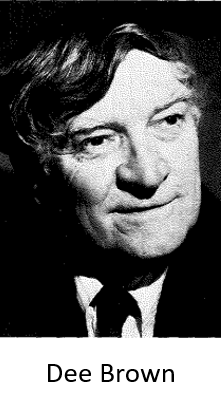Censorship: Who Decides
By Phyllis Schlafly
This "Viewpoint" article was originally published in Kiwanis Magazine, January 1982. It is followed by additional comment by Dee Brown. It is as relevant today as it was 40 years ago.
A great deal of extravagant rhetoric has been printed in recent months about the alleged danger of "censorship." A closer examination of the facts shows that most of the people crying about "censorship" are not against censorship at all. They are really against the exercise of free speech by people with moral or political values different from their own. As a former librarian and the daughter of a lifetime librarian, I heartily subscribe to John Milton's eloquent condemnation of those who would destroy "a good book." But please note: He said "good" book and then repeated "good" for emphasis.
 There is absolutely no way, for example, that Milton's statement, or the First Amendment, or any other canon of civilized behavior can cloak the indecency of a librarian's placing the obscene book Show Me in the children's section of a public library and keeping it there despite the written protests of hundreds of parents whose taxes finance the library.
There is absolutely no way, for example, that Milton's statement, or the First Amendment, or any other canon of civilized behavior can cloak the indecency of a librarian's placing the obscene book Show Me in the children's section of a public library and keeping it there despite the written protests of hundreds of parents whose taxes finance the library.
You owe it to yourself to see Show Me before you pass judgment on this controversy. If you can't find a copy, go to your local adult bookstore and look at the worst it has to offer. Then ask yourself if you believe that your tax money should be used to place such corruption on the open shelves of the children's section in your local library. That was precisely the problem in the library controversy in Chicago, which made national news and engaged the attention of the Illinois legislature. The issue was never any of the well-known classics frequently mentioned in diatribes against "censorship."
The real issue is not whether there will be censorship, but rather who will do the censoring, based on which moral and political standards. More than 10,000 books are published every year. No library can buy them all or even a significant percentage. A small minority of published books must be selected for purchase and placement on the shelves. The librarians select some books and reject others—which is just another way of saying that they engage in their own "choose and censor" activities every workday of the year. They simply don't buy or display the books they don't want the public to read.
If their "choose and censor" standards are intellectually, morally, and socially defensible, the librarians should be more than willing for local citizens to examine and critique the results. After all, most libraries are totally financed by taxes or nearly so. The public has a right to know the criteria for a library's "choose and censor" selections and to evaluate the results. The First Amendment right of free speech should apply to taxpayers as well as to librarians, and the laws against giving pornography to minors should apply to librarians as well as to book dealers and teachers.
The most ruthless and indefensible censorship in the U.S. today is that practiced by the women's liberationists and their allies in libraries, library organizations, and bookstores. Most libraries have dozens of books preaching the anti-family ideology of women's liberation, but many refuse to stock a single book that opposes the women's liberation movement in general or the Equal Rights Amendment in particular.
Choose and censor, indeed! The very people who are crying out against censorship are themselves practicing that which they are decrying. And what gives them more right than anyone else to choose what the public will read?
Additional comment by Dee Brown
 A modicum of censorship is very much like a modicum of fire. Unless extinguished it may spread into a conflagration that can destroy the human spirit.
A modicum of censorship is very much like a modicum of fire. Unless extinguished it may spread into a conflagration that can destroy the human spirit.
Among the human values that suffer first under rigid censorship are imagination and creativity. One has only to examine the state of creativity within nations that enforce or permit censorship to see the result. Everywhere there is a deadening of the arts and sciences, a constriction of human aspirations, a void of inventiveness. Life becomes dull and stale, barren and without vision. Ambition ceases.
In open societies, there is access to all forms of expression; the thoughts and emotions of men and women are free to soar, to experiment, to search for the limits of human capability. People who live in the closed societies of censorship flee at first opportunity to open societies; people who live in open societies refuse or strongly resist emigration to closed societies.
Want to be notified of new
Education Reporter content?
Your information will NOT be sold or shared and will ONLY be used to notify you of new content.
Click Here
Return to Home Page
